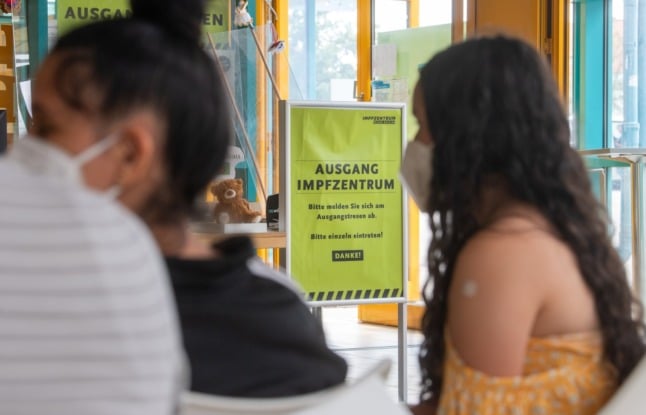Health Minister Jens Spahn and his 16 regional peers agreed after talks that the elderly and at-risk should receive a booster shot, citing concerns over “a reduced or rapidly declining immune response” among some groups.
Mobile vaccination teams should be sent into care and nursing homes, the text says, to offer Pfizer/BioNTech or Moderna booster shots to residents, regardless of which vaccine they had originally.
Doctors will also be able to administer booster jabs to those who qualify, including people with weakened immune systems.
A booster shot will also be offered to anyone who received the two-dose AstraZeneca or single-dose Johnson & Johnson vaccines, the document released by Spahn’s ministry said, “in the interests of preventative healthcare”.
Both AstraZeneca and Johnson & Johnson are viral vector vaccines, whereas the Pfizer and Moderna vaccines use novel mRNA technology that has shown high efficacy in studies.
More access to vaccines for over 12s
The ministers also agreed to make the coronavirus vaccine more widely available to over-12s, going a step further than the country’s STIKO vaccines regulator.
READ ALSO:
- Germany plans Covid booster shots
- Why Germany is embroiled in a row over vaccinating children against Covid
The regulator currently only recommends the coronavirus vaccine for 12-17 year olds if they have pre-existing conditions or live with people at high
risk from Covid.
Although adolescents who do not fall into those categories are still allowed to get vaccinated, in consultation with their parents and doctors, the cautious STIKO guidance has slowed take-up.
Germany’s health ministers agreed on Monday to encourage vaccination among teens by opening all the country’s vaccination centres to 12-17 year olds, alongside the possibility to get vaccinated at regular clinics.
The ministers stressed that the jab was voluntary but said getting children and teenagers vaccinated could “contribute significantly to a safe return to classrooms after the summer holidays”.
Although Germany is currently enjoying relatively low infection rates compared with neighbouring countries, case numbers have been creeping up in recent weeks mainly because of the more contagious Delta variant.
There are also concerns about a slowdown in the country’s vaccination rate, with just over 52 percent of the population fully inoculated.
Within the European Union, the European Medicines Agency has approved the Pfizer/BioNTech and Moderna shots for all over-12s.
STIKO head Thomas Mertens told public radio MDR that the body was still waiting for data from longer-term studies before deciding on issuing a more
general vaccine recommendation for over-12s.
The problem, he added, “is not so much the children’s vaccinations”.
What is needed to help suppress a fourth Covid wave in Germany “is a high vaccination rate among 18-to-59 year olds”.



 Please whitelist us to continue reading.
Please whitelist us to continue reading.
Member comments